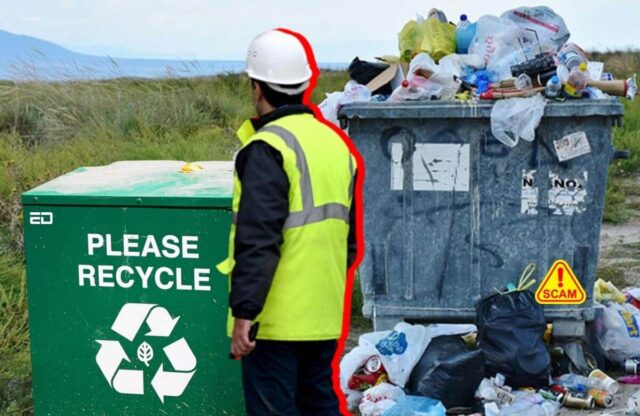Recycling has always been promoted as a crucial thing to save the environment. There have been endless campaigns by the governments of practically every country, regional bodies, celebrities, NGOs, influencers and more where it’s all been about how people need to recycle, recycle and recycle in order to lower the environmental danger the world is currently seeing.
But while recycling is certainly important, especially given the current climate where the environment is somehow only degrading by the day despite efforts, it is also important to know how to recycle.
This is what some scientists at a university in the U.S. figured out is happening, leading them to claim that recycling is seeming more like a scam that is doing harm to the environment than actually helping out.
What Did The Scientists Say?
Scientists from the University of Virginia in a study have found that while recycling campaigns did do good in decreasing the rising landfills and the waste being reused, however, it the overmarketing of it has taken over the more serious issue of over-production.
They also said that other sustainable waste reduction strategies are not paid as much attention as the recycle one, even there, people are not doing it properly.
A team from the university, wrote a lengthy essay at The Conversation, after observing data from two nationwide surveys in the U.S. conducted in October 2019 and March 2022, found out that “people overlook waste reduction and reuse in favor of recycling. We call this tendency recycling bias and reduction neglect.”
Read More: Is Climate Change Making The Human Brain Shrink?
In their surveys they had participants rank the waste management industry’s popular slogan of “Reduce, Reuse, Recycle” and how effective they are to combat environmental issues, a majority of them claimed that recycling was among the most effective making them think it’s the one simple solution to the problem.
As per the survey, as many as 78% or three out of four participants were not able to order the Environmental Protection Agency’s waste management hierarchy of which are best to worst preferred environmentally. Around 46% also were unable to correctly order the much-known phrase “Reduce, Reuse, Recycle”.
In another survey participants were made to sort waste using a computer program between recycling, compost, and landfill bins, even where the general lack of knowledge about these things showed since many put non-recyclable items, such as plastic bags and lightbulbs into the recycle bin.
The study also found how U.S. policy and corporate conversations have managed to make consumers the biggest waste producers with terms like “post-consumer waste.”
While consumers certainly contribute to waste production does not mean that corporations don’t have any hand in it themselves, with them promoting recyclings but not introducing it actively into their operations and still overproducing products.
Things like asking consumers to return products that the company will be disposing of themselves, covering recycling costs and making and selling goods that are easily recycled from the get-go.
Image Credits: Google Images
Feature Image designed by Saudamini Seth
Sources: Firstpost, Futurism, The Guardian
Find the blogger: @chirali_08
This post is tagged under: recycling campaigns, recycling harmful, recycle harmful, recycle, recycle University of Virginia, University of Virginia, University of Virginia scientists
Disclaimer: We do not hold any right, copyright over any of the images used, these have been taken from Google. In case of credits or removal, the owner may kindly mail us.
Other Recommendations:
Did You Know A Superworm Can Change Everything About The Environment?





































